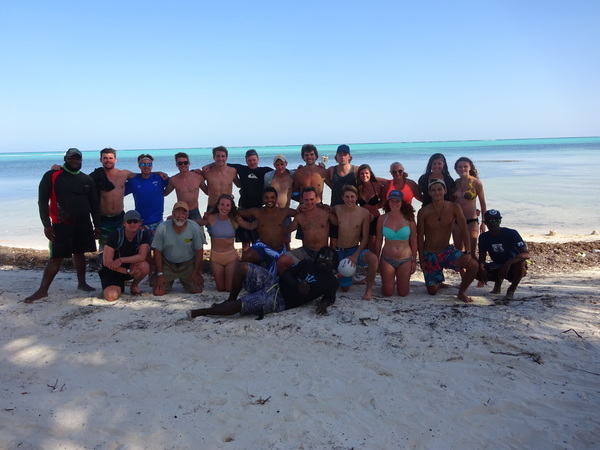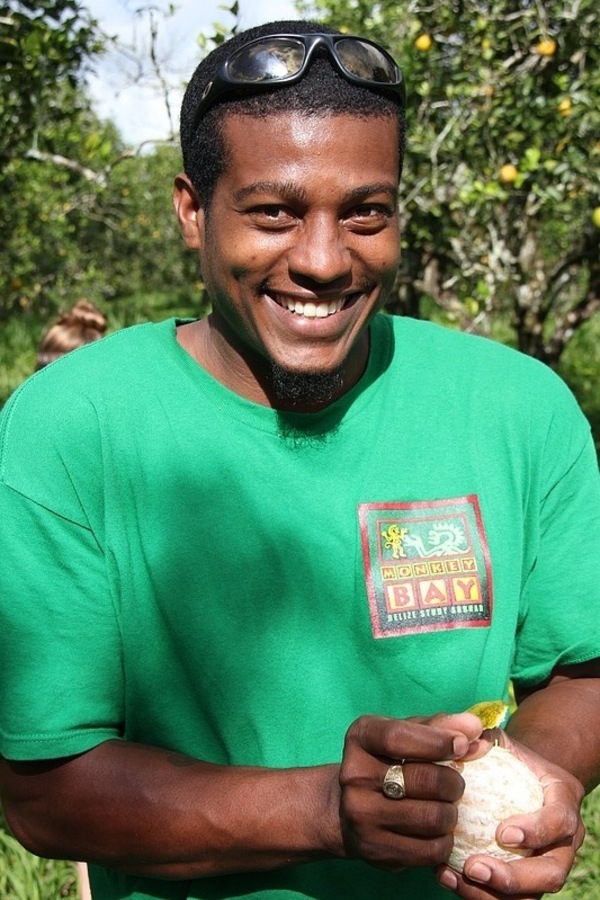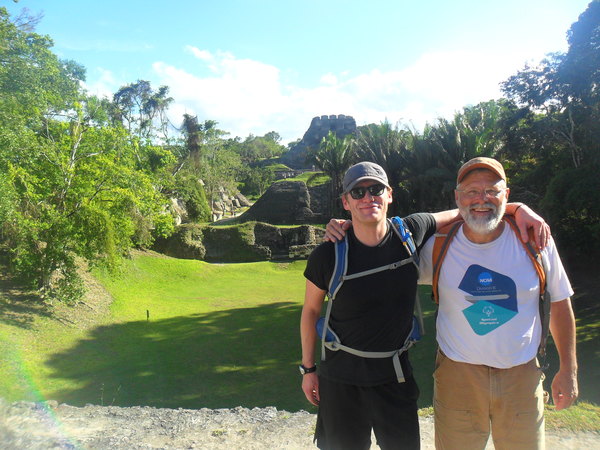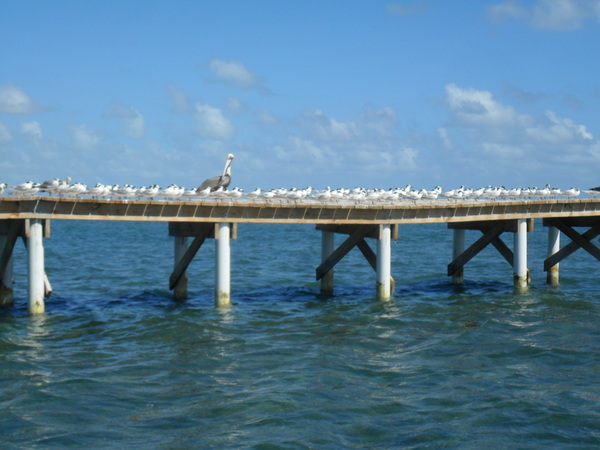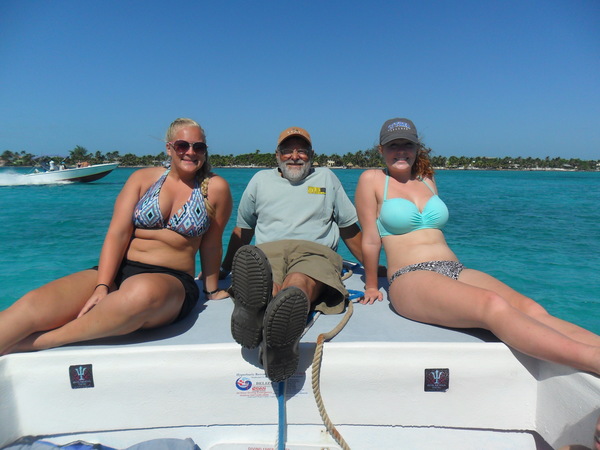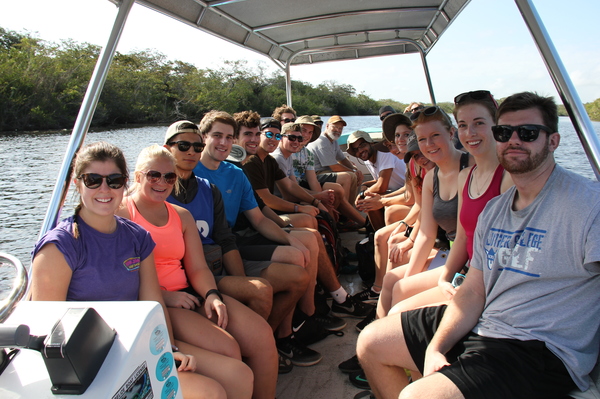We made it back alive! After a month of mosquito bites, we are home from our adventure through the beach and the bush!
Over the last 3 weeks I have written five blog posts regarding our trip. Hopefully you found my thoughts somewhat interesting, however, if you are sick of reading my opinions this is the blog post for you! Below are the reflections of three classmates. Enjoy!
Brooke Stauffer '17
I am amazed by all of the adventures we got to experience in Belize. We went cave tubing, spelunking, and searching for crocodiles in the pouring rain. In addition, we spent many days snorkeling and even held a beach barbeque on the beautiful island of Ambergris Caye. Through all of these activities, we got to experience the uniqueness that Belize has to offer. While participating in this broad array of ecotourism activities, we were able to connect our class discussions to our adventures. These class discussions included the impact that tourism has on Belize. We discussed the fact that tourism is a driving force to the economy in Belize, however it is also negatively impacting the country and its ecosystems because of the large amount of tourists. We concluded our class with proposing possible solutions to the problems Belize is facing. Some of these problems include cruise ship pollution, impact on the coral reef, deforestation, and the ineffective legal framework of the Belizean government. While our solutions are not likely to change the world, we realized that through civic engagement and education, we can take large strides in informing both local communities and tourists on how their lifestyles are impacting the country of Belize.
Tyler Regan '17
Being able to experience both the inland and the island of Belize was my favorite aspect of the trip. It gave us the opportunity to experience the whole country, including two different ecosystems, the jungle and the ocean/coral reef system. Our professors and Luther also did a really good job at scheduling the trip and excursions to make the most of the time we spent in Belize. I remember while heading to the island after 10 days inland, many students had said that if we were heading home right now, they would be satisfied. They felt like we had already done so much, but we weren't even halfway done with our trip! Overall, it was a great experience and the perfect way to end my college career.
Forrest Stewart '19
One of my largest struggles over the past month has been trying to figure out a selfidentity in the context of Belize. First and foremost this has been of me trying to figure out how to deal with the the label of “tourist” and, more specifically, “American tourist”. Belize’s economy is currently held together, in almost every aspect, by revenue from tourism and our class’s study focused heavily on the impacts of this tourism on the country. On our trip I found myself repeatedly coaxing impassioned speeches from locals about tourism. Throughout the country, from the western Guatemalan border, to the forested interior, to the heavily developed, touristdominated eastern islands, Belizeans are engaging in heated, heavily political, frank, often aggressive (yet nearly always compassionate) discussions about what we in America simply call “vacation”. Responses to the fairly general inquiry of something like “What do you think of tourism?” or “Do you think Belize needs tourism?” were entirely unpredictable. Answers ranged from positive statements about the job opportunities offered to Belizeans to fiery tirades often referring to American developers and tourists as greedy, as abusers, as “those motherfuckers”. During these conversations—often at a bar surrounded by both locals and tourists—I would express my sympathy, my solidarity, and even my anger at the way the Belizean people are dependent on an economy that is fundamentally rooted in the practice of catering to wealthier outsiders and developing (physically, socially, and culturally) in a way that often leaves Belize’s own people, cultures, and communities significantly worse off than the 'vacationers’. I would express these sentiments and then always remember: I am one of these tourists. It’s not how nice or thoughtful the tourists are that determines their damage to Belize. It doesn’t really even matter much that I was a student studying these very issues. Tourists aren’t coming to Belize in the hopes of gentrifying the country, pricing the local people out of their own land, or generally hurting the country or people. But that doesn’t change economic realities. Coming to terms with this reality of identity was difficult for me. I felt hypocritical, I felt isolated. And, unfortunately, I don't really have a big redemptive turning point in this reflection. I know I wasn’t alone in thinking about our class’s nearly paradoxical role in the country and I think this is just the current reality, not just in Belize but in tourist destinations across the globe. Going forward I do not wish to live in shame of the externalities associated with my existence on the earth. Based on our readings for class, conversations with local people, and my observations of Belize, I don’t believe that tourism must be damaging. To avoid it though requires ways of thinking that run contrary to conventional western principles like growth-based definitions of progress, a mentality of wanting to own all that we see or love and the belief that our own ideas and values are “normal” or universal. There is no perfect solution to these problems at this point. Belize is an incredible country in so many different ways and outsiders will not be growing tired of it anytime soon—nor should they. So, the best thing we can do for now is be ridiculously respectful, utilize our minds to think critically about injustice, explore the world in a way that leaves as little impact as possible and to rejoice in the extraordinary diversity that is so accessible in a globalized world.




